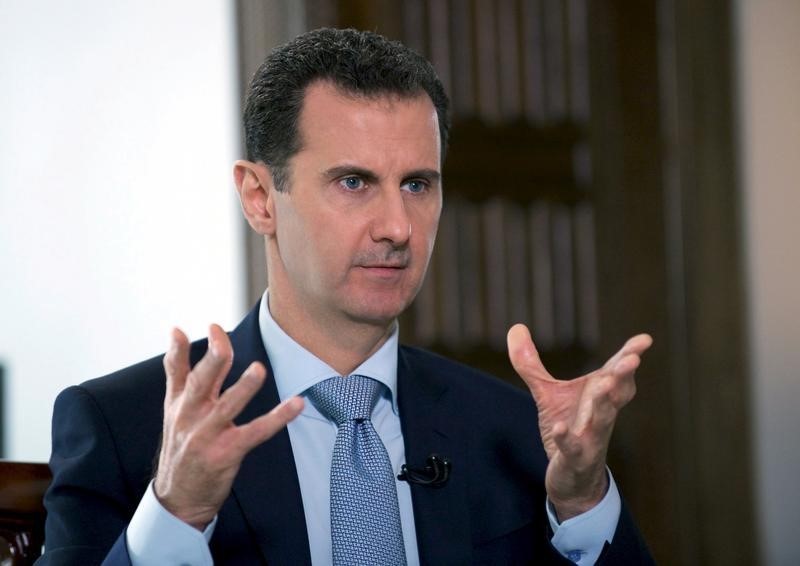BEIRUT (Reuters) - A monitoring group has said that at least 60,000 people have died in Syrian government jails during the five-year conflict.
Syrian government officials could not be reached for comment on the report by the Syrian Observatory for Human Rights, which cited sources in the security apparatus for the toll. The government has rejected similar reports in the past.
"No fewer than 60,000 detainees were martyred ... either as a result of direct bodily torture, or denial of food and medicine" the Observatory said in a written statement on Saturday.
The Observatory's director, Rami Abdulrahman, said it had arrived at the number by adding up death tolls provided by sources in several Syrian jails and security agencies.
He said more than 20,000 of them had died at Sednaya prison near Damascus. The Observatory said it had been able to verify the deaths of 14,456 people, 110 of them under the age of 18, since the start of the Syrian uprising in 2011.
Abdulrahman said his sources were serving officials seeking to expose what was going on, and the Observatory had been gathering the information since the start of the year.
U.N. investigators said in February that detainees held by the Syrian government were being killed on a massive scale.
"LARGE NUMBERS"
"We know large numbers of people have died in detention in Syria," said Nadim Houry, deputy director of the Middle East and North Africa division at Human Rights Watch in a telephone interview.
"The only way to get to the bottom of the numbers question is to allow for independent monitors into the detention centers," he added.
A Syrian defector known as Caesar in 2013 smuggled out tens of thousands of photos taken between May 2011 and August 2013 that show at least 6,786 separate individuals who had died in government custody, HRW said in a report issued in December.
That toll was calculated by the Syrian Association for Missing and Conscience Detainees (SAFMCD), which was formed by an opposition body and reviewed all the photos, the HRW report said.
President Bashar al-Assad, in a 2015 interview, dismissed the Caesar photos as "allegations without evidence", and part of a Qatar-funded plot against his government.
Houry said: "Whether it is 60,000 or 30,000, the number is just huge. Despite the Caesar photos, the multiple reports, there is no international traction."
The U.N. investigators said in February the reported killings of detainees amounting to a state policy of "extermination" of the civilian population, a crime against humanity.

The independent experts said they had also documented mass executions and torture of prisoners by two jihadi groups, the Nusra Front and Islamic State, also known as ISIS or ISIL. These constituted war crimes and in the case of Islamic State also crimes against humanity.